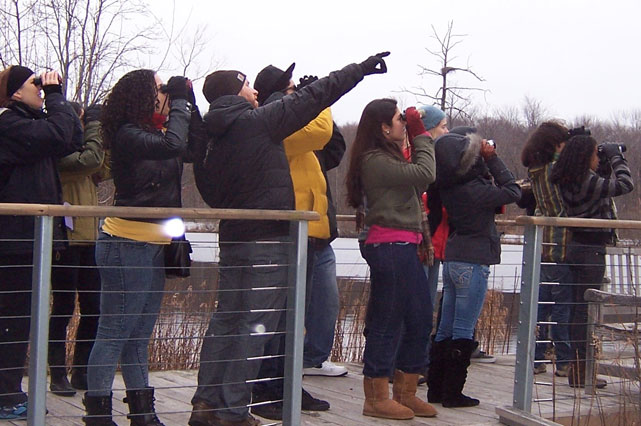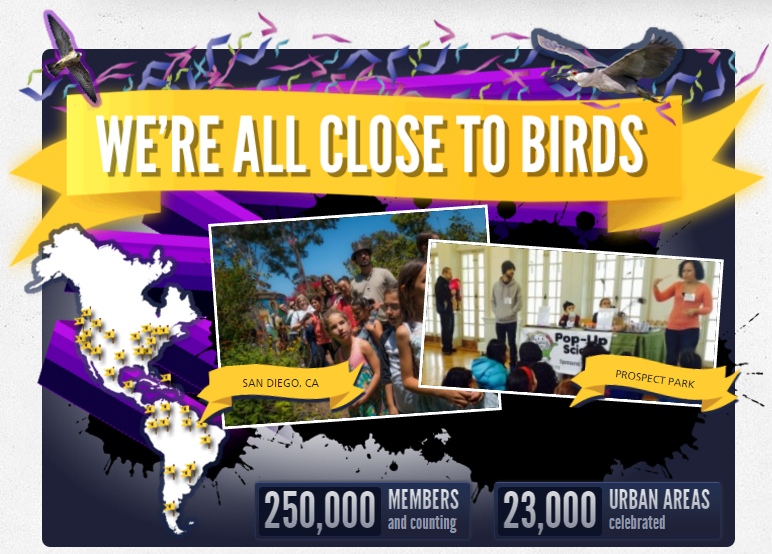Celebrate Urban Birds

Celebrate Urban Birds (CUBs) is a year-round citizen-science project developed by the Cornell Lab of Ornithology to reach diverse urban audiences who do not already participate in science or scientific investigation. The project collects data from participants, providing valuable knowledge of how different environments influence birds in urban areas.
In the last 8 years, CUBs has partnered with over 11,000 community-based organizations, distributed more than 350,000 educational kits, and awarded dozens of mini-grants. Of the project’s partner organizations, 92% work with underserved audiences. Participants range in age from preschoolers and kindergartners to seniors, and more than 75% have little or no experience with birds. The project is available in English and Spanish and all educational materials, trainings, workshops, and website are bilingual.

What can Celebrate Urban Birds offer land trusts?
Despite the name, CUBs is not restricted to dense city environments and works with participants and community-based organizations in urban, suburban, and rural locations. The sixteen project focal species can be found in a wide range of environments throughout North America (CUBs also sends educational materials to and collects data from Canada and Mexico). Mini-grants, ranging from $100 to $750, are offered annually to support participating organizations working in low-income neighborhoods. Organizations, educators, and youth are encouraged to apply to help fund creative neighborhood events or series of activities, and are encouraged to involve the arts, neighborhood greening, or other community habitat-creation efforts in their proposals. All mini-grant applicants can receive free materials and training to support their events (even if their proposals are not funded). Organizations working with underserved communities are strongly encouraged to apply and no experience with birding is needed.
CUBs can be a great way to reach a larger audience and increase volunteer capacity when it comes to land in or around urban areas—visit the Who We Are page to get started.


